Expediency triumphs over principle in electoral politics

One twist after another is unfolding as the political plot thickens in the lead-up to the general election slated for January 7. All elections have some common features, such as polarisation, efforts to split and weaken the opposition camp, emergence of smaller parties as important factors, etc. But the upcoming election has three unique aspects that have not been seen in Bangladesh's electoral politics before. That all these have emerged in the context of sustained international attention—with an apparent division among the international quarters (that are influential in Bangladesh) over the election—make these unique aspects all the more interesting.
First, a significant part of the international quarters expect a free, fair and participatory general election this time as the last two elections have been anything but that. Whether it will be free and fair, one cannot yet predict. But what can be predicted with a fair degree of certainty is that BNP, the political opposition on the field, will not take part in the election. Neither will a few other smaller parties—both left-wing and right-wing.
BNP refusing to join the polls was always a possibility, and so the ruling Awami League needed a solid contingency plan to pass the election off as participatory. It has become clear that it plans to do that through independent candidates. For the first time in the country, a political party is encouraging independent candidates to run against its own nominated candidates. It is very likely that the independents are rebels from within the Awami League who are breaking ranks after being rejected a nomination; only this time, they are not causing bitterness and will very likely be welcomed into the party's fold if they end up winning. However, this is going to be the feature in some selected constituencies. So, although it will be like Awami League insiders are facing off against each other, the election should appear participatory, and even vibrant, if not completely free and fair.
Second, till the last date of nomination submission (November 30), everyone kept an eye on BNP and the newly formed "king's parties" to see who were quitting and who were participating in the election, affirming Awami League's claim of inclusive elections as well as a crumbling resolve of the BNP. When Awami League General Secretary Obaidul Quader said in his typical lilt, "Those who were worried as to who will participate [in elections] and who won't... flowers have started to bloom... there's nothing to worry... more flowers will bloom. Hundreds of flowers will bloom before the nomination submission deadline," it caused many to sit up and observe more attentively.
Unfortunately—for the Awami League, at least—instead of hundreds of flowers, they could land only one big fish. Former BNP leader Shahjahan Omar walked out of jail and fell directly into Awami League's embrace with an election nomination. That is a serious show of appreciation since the ruling party is not considering many other faithful allies for its nomination. There was a rumour that many BNP leaders would join the polls leaving the party; perhaps that's why Quader said "hundreds of flowers will bloom" before the nomination submission deadline. There were 17 in total—BNP followers from different levels, but none from the top tier except Omar and adviser to BNP chairperson Syed AK Ekramuzzaman.
Shahjahan Omar's case deserves a deeper examination. He was arrested for arson on November 4 and remanded to police custody, indicating that his case was serious. But then suddenly he was granted bail on the day before the nomination submission deadline. Omar walked out of jail, secured a nomination from the ruling party which, till now, seems as good as an electoral victory and five years of MP-ship.
Awami League's willingness to prioritise expediency over principles is evident in this specific case. Omar's supposed allegation of arson seemed to not matter at all, although the prime minister, also the president of Awami League, said, "I think the hands they use to set a bus on fire should be burnt immediately." This only demonstrates how allegations and charges could vanish, the legal system could oblige, and law enforcers could become accommodating at the bidding of the ruling party to secure its political ends. Surely it was a relief for the BNP as no other big shots left the party. BNP leaders claimed it a victory against the government's repression and oppression. They also said Omar's case exposed how the government controlled the judiciary and also its plan to split the BNP.
The third feature concerns the Jatiya Party. The party's chief patron, Raushan Ershad, is not in the electoral race due to an internal feud. This is the first time since she was first elected MP from Rangpur-3 in 1996 that Raushan is not participating in a national election. When Jatiya Party Chairman HM Ershad was against joining the 2014 election, Raushan took part in it along with some party men, providing the Awami League the ability to say that the election was participatory, and went to play the proxy role of a cosmetic opposition in parliament. It was a great service to the ruling Awami League at that time.
Since then, Jatiya Party's character and role has been dubious, flip-flopping among staunch allies, estranged friends and jilted opposition. Raushan is known to be loyal to the ruling party, but when she needed its support, it seems the Awami League gave her the cold shoulder. A media analysis quoted a party leader as saying, "The prime minister had praised Raushan madam so many times in parliament for her contribution to making the parliament effective. But the bitter truth is that Raushan did not get the PM's appointment to resolve the nomination-related crisis in [Jatiya Party]."
Raushan was always in favour of the election while Jatiya Party Chairman GM Quader was against it. But Quader secured absolute control over the party and ousted Raushan loyalists. And this time, the ruling party did not come as a saviour for Raushan. This also evinces the point that in this game of electoral politics, expediency wins over traditional values.
As mentioned above, all these features are unique to this election, never seen before in the country. It is impressive how the Awami League has opted to take this route without hesitation. However, it appears that all its enterprise revolves around the next election, not considering longer-term ramifications for the party. Only time will reveal the nature and extent of said ramifications.
Mohammad Al-Masum Molla is chief reporter at The Daily Star.
Follow The Daily Star Opinion on Facebook for the latest opinions, commentaries and analyses by experts and professionals. To contribute your article or letter to The Daily Star Opinion, see our guidelines for submission.

 For all latest news, follow The Daily Star's Google News channel.
For all latest news, follow The Daily Star's Google News channel. 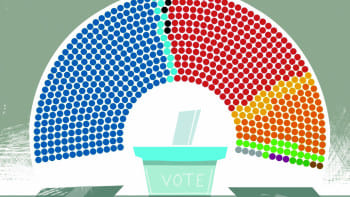
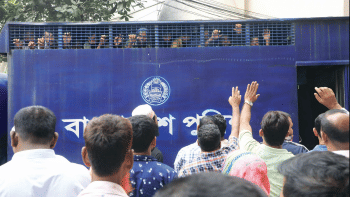
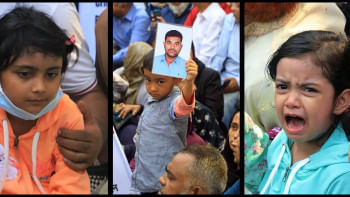
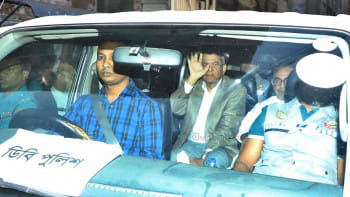








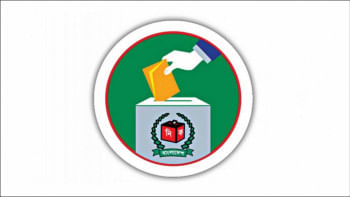
Comments